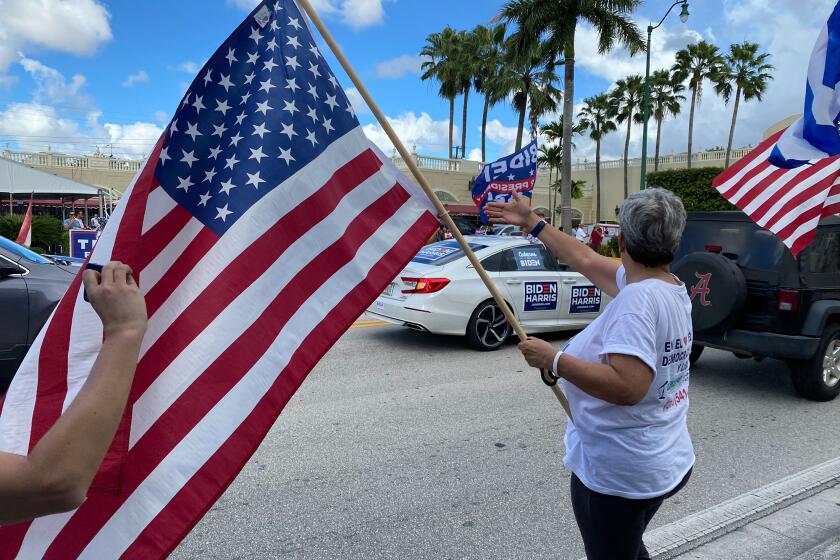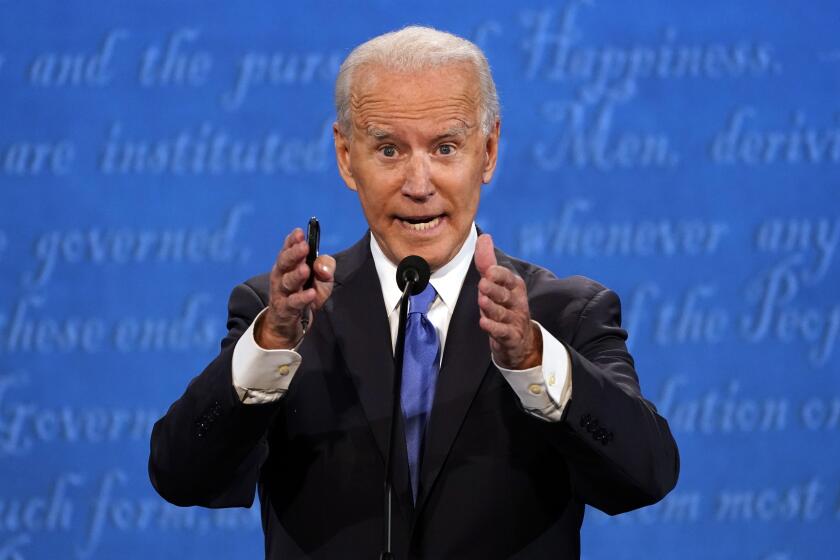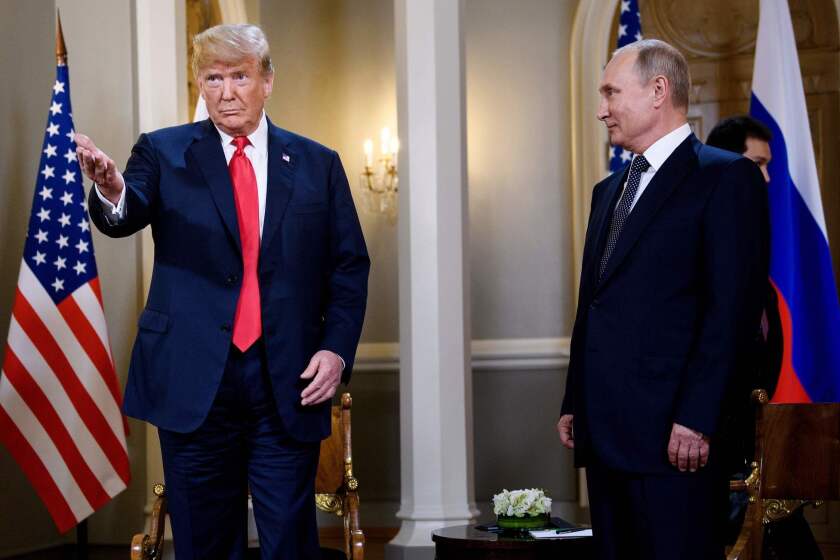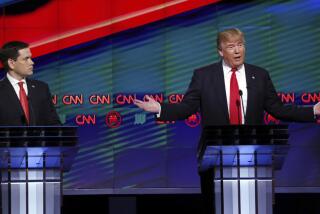Colombia’s far-right wing backs Trump, aiming to help him in crucial Florida vote
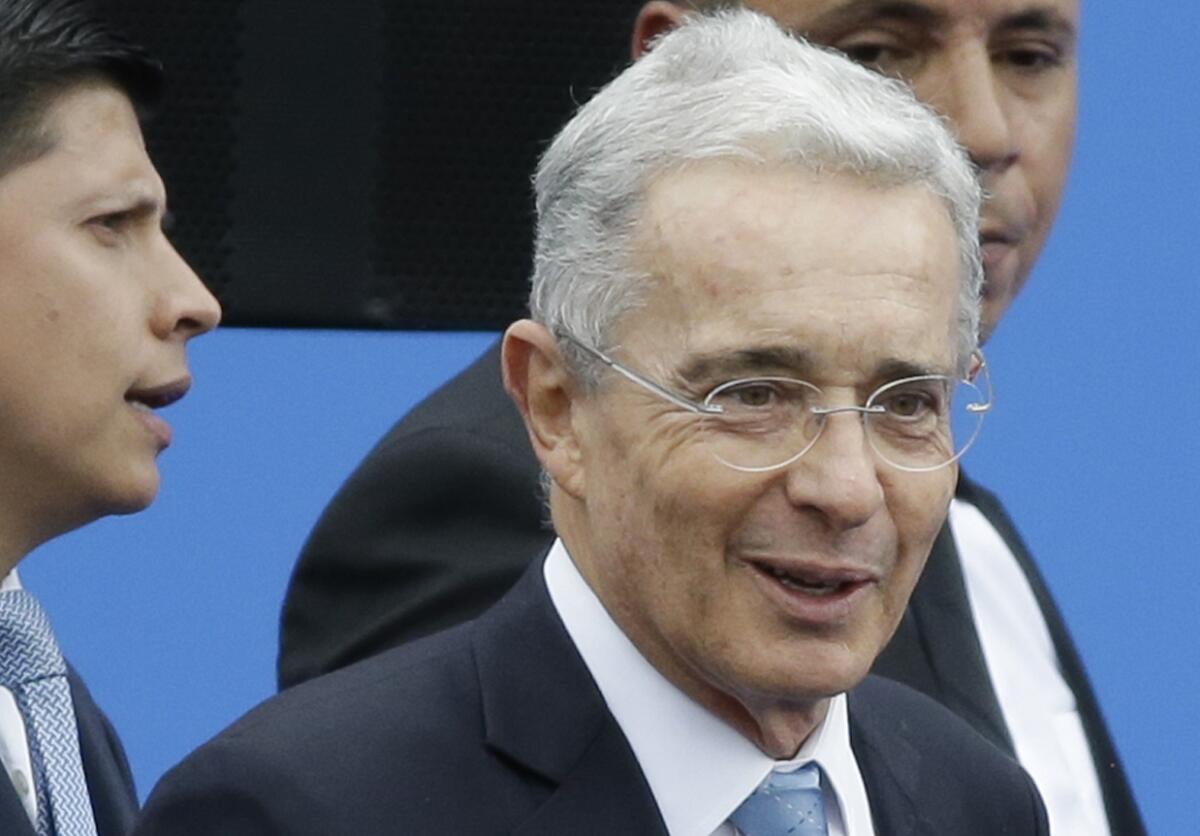
WASHINGTON — Even before his first trip overseas as president, Donald Trump met, quietly, with the Colombians.
They button-holed him in April 2017 at his Mar-a-Lago resort in Florida, where Trump often held court from the dining room.
A former president, Álvaro Uribe, sat at Trump’s table and lobbied against a new peace agreement that the Obama administration enthusiastically endorsed but that Colombia’s far right felt was too lenient toward the leftist guerrillas who fought Colombian governments for decades. Another former president, Andrés Pastrana, was also present.
That encounter appears to have colored U.S. relations with traditional ally Colombia throughout Trump’s first term and helped undermine the internationally hailed peace agreement, which in 2016 ended the oldest conflict in the hemisphere. Deadly violence has soared in recent months, much of it targeting former rebels, and many Colombian analysts say the treaty is all but void.
And in August, Uribe was arrested by Colombian authorities on charges related to ties with right-wing paramilitary death squads.
But that hasn’t deterred Uribe. He and a couple of other Colombian politicians have emerged as staunch Trump supporters, taking the frowned-upon step of overtly endorsing a presidential candidate, or his allies, in a foreign land.
That action has earned them a rare public rebuke from the U.S. ambassador to Colombia.
“The success of U.S.-COL relations over many years has been based on bipartisan support,” Ambassador Philip Goldberg said on Twitter. “I urge all Colombian politicians to refrain from involvement in U.S. elections.”
Goldberg is a veteran foreign service officer — the kind of bureaucrat Trump often eschews — but was appointed to the Colombia post last year.
Maria Elvira Salazar, a Cuban American former TV broadcaster who is challenging former Clinton administration official Donna Shalala for her congressional seat from Florida, proudly announced Uribe’s endorsement.
At an online forum with Uribe and right-wing Colombian legislators a few weeks ago, Salazar claimed candidate Joe Biden and the Democratic Party “have been taken over by the radical socialist left.”
In Latino households and communities, disinformation about the presidential election is rampant. Many are trying to combat it online and in person.
“We would like to see you in the U.S. Congress,” Uribe said. “We need you.”
Uribe repeatedly warns against “Castro-Chavismo” spreading through Latin America and into the United States, and baselessly attempts to link it to Biden. The term alludes to former leaders of Cuba, Raul and the late Fidel Castro, and Venezuela’s late President Hugo Chavez.
Biden, a longtime moderate who was Barack Obama’s vice president, has scoffed at attempts to portray him as tilting to the far left. “Do I look like a radical socialist?” he asked at one Pittsburgh campaign event. He has pointed out that he “beat the socialist,” referring to Vermont Sen. Bernie Sanders, a democratic socialist who came in second to Biden in the Democratic primaries.
If former Vice President Biden wins, here’s a look at who might be on his foreign policy team.
Uribe’s rhetoric plays into Trump’s broader strategy for luring votes in Florida. Scare-mongering tactics that paint a radical left similar to what many immigrants in Florida fled from, in Cuba or Venezuela, resonate with some voters, especially older ones.
This is a reversal of a recent trend. Florida voters of Cuban or other Latin American heritage for years were reliable conservatives who voted Republican. The phenomenon began to change in the early 2000s as a younger generation became eligible to vote. Thanks in part to them, Florida helped elect President Obama.
In 2016, however, Trump took Florida by about 100,000 votes, and since then he and his top aides have beat the communism drum with numerous rallies for Latinos in Florida and, at one point, coining the phrase Troika of Tyranny to refer to Cuba, Venezuela and Nicaragua, all ruled by leftists.
Uribe, in that first Mar-a-Lago meeting with Trump, is believed to have gotten the new president’s attention by portraying the guerrillas in Colombia as unrepentant Marxists who would convert the country into a communist stronghold.
In fact, most of the guerrillas agreed to lay down their weapons, and many have joined mainstream politics. A smaller dissident group remains armed and active, sheltering in neighboring Venezuela.
Most of Uribe’s public endorsing has been through a right-wing Colombian congressman, Juan David Vélez, a dual U.S.-Colombian citizen who has been actively campaigning on behalf of Trump and other Republican candidates in Florida.
“We understand that there is a risk of becoming socialist or communist,” Vélez told Miami radio station WLRN-FM, “not only in countries of South America, but also in the United States.”
Uribe served as president of Colombia from 2002 to 2010 and was replaced by Juan Manuel Santos, his former defense minister who became a candidate only after the Supreme Court refused Uribe’s request to run for an unprecedented third term.
‘America first’ vs. America in the world. On most foreign policy issues, Trump and Biden vary widely
In foreign policy, Joe Biden would dismantle President Trump’s actions, while the incumbent would stay his unpredictable course.
Santos, however, turned the tables on Uribe and negotiated the landmark peace agreement that ended 52 years of war in the summer of 2016. Obama’s secretary of State, John F. Kerry, attended the signing ceremony for the peace deal, one of Kerry’s last international gestures, to signal its far-reaching importance.
Santos was awarded the Nobel Peace Prize later that year.
Uribe, whose father was killed by guerrillas in the 1980s, was a controversial president. Some Colombians admired his iron-fisted approach cracking down on leftist violence, but his government was accused of a litany of human rights atrocities. He was placed under house arrest in August, facing charges of witness tampering in a case involving his government’s alleged support for right-wing paramilitary death squads.
Uribe, who has denied wrongdoing, was released from house arrest last month while the investigation continues.
When his release was announced, Trump welcomed the news.
“Congratulations to former President @AlvaroUribeVel, a hero, former recipient of the Presidential Medal of Freedom and an ally of our Country in the fight against CASTRO-CHAVISMO!” Trump said on Twitter. “I will always stand with our Colombian friends!”
More to Read
Get the L.A. Times Politics newsletter
Deeply reported insights into legislation, politics and policy from Sacramento, Washington and beyond. In your inbox three times per week.
You may occasionally receive promotional content from the Los Angeles Times.
